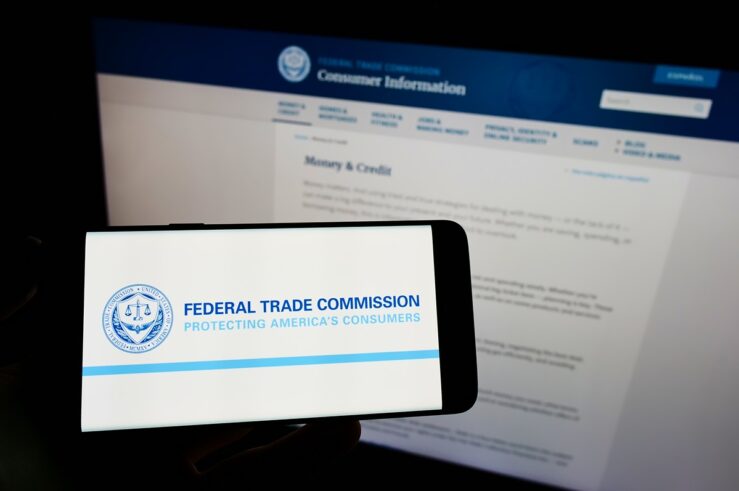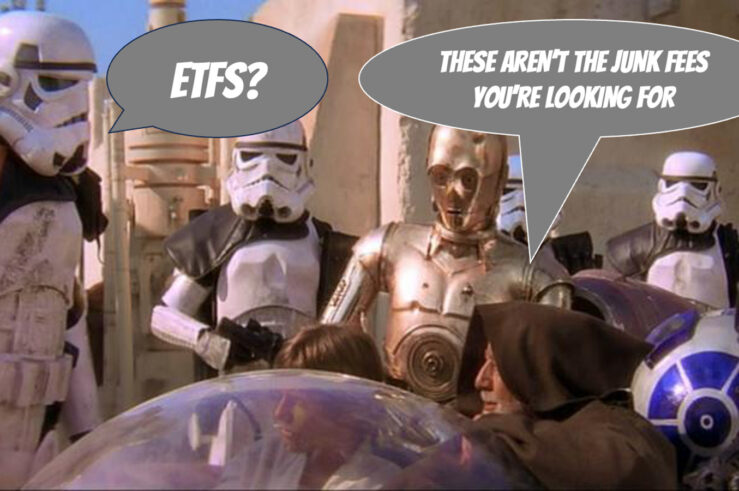Showing archive for: “Economics”
How Should We Measure Competition?
Competition is the driving force behind the success of markets. It’s hard to imagine a thriving market economy without the presence of competitive forces. But how do we actually measure competition? I use the term all the time, but do we actually have a measure of it? This question is more complex than it may ... How Should We Measure Competition?
What We Know About the Rise in Markups
In my research and newsletters, I’ve written about how to interpret markups—mostly on the theory side. I haven’t devoted much space explaining the empirics. How high are markups in the United States? Are they rising? If so, by how much? This post seeks to answer those questions. I’m writing it after reading a new paper ... What We Know About the Rise in Markups
Kroger/Albertsons: Is Labor Bargaining Power an Antitrust Harm?
The Federal Trade Commission’s (FTC) recent complaint challenging the proposed merger of the supermarkets Kroger Co. and Albertsons Companies Inc. has important implications for antitrust enforcement in labor markets. Central to the FTC’s case is how it chooses to define the relevant markets, and particularly the commission’s focus on unionized grocery workers. The complaint alleges ... Kroger/Albertsons: Is Labor Bargaining Power an Antitrust Harm?
Antitrust at the Agencies Roundup: The Supply Chain, Part Deux
But First, Money Makes the World Go ‘Round For all my carping about this or that program or enforcement matter, it seems to me a very good thing that Congress passed—and President Joe Biden signed into law—the spending package that will keep much of the federal government up and running for Fiscal Year 2024 (see ... Antitrust at the Agencies Roundup: The Supply Chain, Part Deux
Antitrust at the Agencies Roundup: Supply Chains, Noncompetes, and Greedflation
The big news from the agencies may be the lawsuit filed today by the U.S. Justice Department (DOJ) and 16 states against Apple alleging monopoly maintenance in violation of Section 2 of the Sherman Act. It’s an 86-page complaint and it’s just out. I’ll write more about it next week. Two quick observations: First, the ... Antitrust at the Agencies Roundup: Supply Chains, Noncompetes, and Greedflation
Are Early-Termination Fees ‘Junk’ Fees?
Cable and satellite companies often get a bad rap for early termination fees (ETFs). Consumer advocates portray them as “junk fees” or billing traps meant to cheat customers. And the Federal Communications Commission (FCC) appears to accept these allegations at face value, characterizing ETFs as “junk fee billing practices … that penalize subscribers for terminating ... Are Early-Termination Fees ‘Junk’ Fees?
The Curious Case of the Missing Data Caps Investigation
In an announcement that was treated to mild fanfare (meaning it was reported by certain tech blogs, but largely ignored elsewhere), Federal Communications Commission (FCC) Chair Jessica Rosenworcel asked her fellow commissioners in June 2023 to support a formal notice of inquiry (NOI) to learn more about how broadband providers use data caps on consumer ... The Curious Case of the Missing Data Caps Investigation
A Consumer-Welfare-Centric Reform Agenda for the Federal Trade Commission
As we approach a presidential election year, it is time to begin developing a comprehensive reform agenda for the Federal Trade Commission (FTC). In that spirit, this post proposes 12 reforms that could be implemented by new leadership, either through unilateral action by a new chair or (in some cases) majority votes of the commission. ... A Consumer-Welfare-Centric Reform Agenda for the Federal Trade Commission
Why Armen Alchian Is the GOAT
Tyler Cowen has a new online book out titled “GOAT: Who is the Greatest Economist of All Time, and Why Does it Matter?” While there are potential problems in treating ideas like basketball, the project is a fun, fast read overall. As the author of a newsletter with frequent gifs, I’m all for encouraging light-hearted ... Why Armen Alchian Is the GOAT
Shining the Light of Economics on the Google Case
The U.S. Justice Department has presented its evidence in the antitrust case alleging that Google unlawfully maintained a monopoly over “general search services” by “lock[ing] up distribution channels” through “exclusionary agreements” with makers and marketers of devices. Google’s agreements with Apple, for example, have made its search engine the default in Apple’s Safari browser. The ... Shining the Light of Economics on the Google Case
Is Amazon’s Scale a Harm?
Under the leadership of its professional anti-Amazoner Chair Lina Khan, the Federal Trade Commission (FTC) has finally filed its antitrust complaint against Amazon. No, not the complaint about how it’s unfair to take six clicks to cancel your Prime membership. This is the big one. It mostly revolves around sellers needing to use Amazon’s fulfillment ... Is Amazon’s Scale a Harm?
I, For One, Welcome Our New FTC Overlords
In this post—the last planned post for this symposium on The FTC’s New Normal (though we will continue to accept unsolicited submissions of responses)—I will offer some summary of the ideas that have been shared here over the past month, before turning to some of my own thoughts. To keep your attention rapt, I will ... I, For One, Welcome Our New FTC Overlords
















